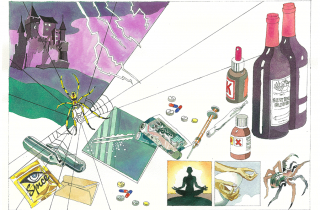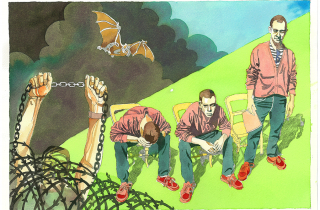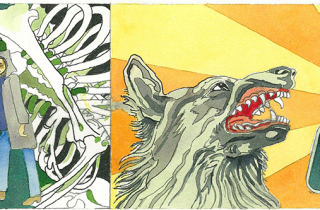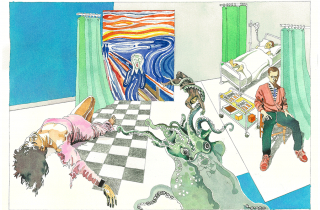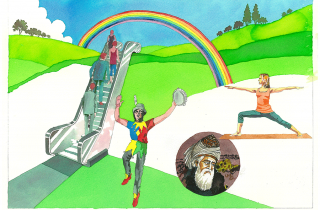Q&A with Ian Young of Sober Services
Sober Services is a professional company that carries out Interventions. The following is taken from their website:
“As part of the A.I.S (Association of Intervention Specialists) Sober Services are one of the few organizations specifically trained to guide families and colleagues of those suffering through this procedure. It is important to note that interventions should only be carried out in the presence of at least one trained and qualified person.” ———————————————–
Q: What advice would you have for parents of a middle-aged addict if that addict refuses to leave their house? This kind of situation can turn the parents’ lives into a nightmare as they get older.
A: My attitude towards any family looking to help their loved one into recovery is first of all to evaluate just how the addict’s disease is compromising their own quality of life, and then to see how the family are actually enabling the addict to continue in destructive behaviours.
These two points are both relevant in order to:
- a) Leverage the family’s pain and anguish that they’re experiencing in order to increase the likelihood that they’ll follow my directions around Tough Love in order to confront the addict, and
- b) by knowing how the family are enabling the addict to continue to actively engage in his or her addiction, we can begin removing these props that are supporting the illness.
So in the case of this example, if we’re going to effectively confront the addiction living amongst the family, we’re going to have to threaten the addict with being expected to leave the house and fend for themselves if they choose to carry on using; and we’ll need to genuinely follow through on this if they refuse. Sober Services will have provisions in place to monitor them if they do decide to leave, rather than accept the help we’re offering,
But the one thing we do know is that if they continue to live in the family house, they’re never going to need to quit their addiction. Why would they? They’ve no need to. They’ve got shelter and probably food and access to other luxuries too. The addict will move towards pleasure and away from pain. So we need to change the addict’s perception of their potential future by removing the options that the addict associates with pleasure and present them with a very different picture of their future – without the pleasurable things, i.e. with more pain.
The aim here is to give the addict an emotional rock bottom right here, right now, and to push their perception of pending pain so high that they realise that accepting treatment is the easier, softer and less painful way forwards.
Q: If a family would like to carry out an Intervention but can’t afford to pay a professional to help them, what can they do on their own? Is there anywhere they can find the support necessary to do an Intervention? What approach could they use?
A: It really is not recommended that you attempt an Intervention without professional help and guidance from experienced Interventionists.
I always expect my new Interventionists to come out and watch me for 3 to 5 Interventions before I’d evaluate them and encourage them to go out alone. Interventions are complicated processes.
But they are also expensive. If you do not have the financial resources to afford an Interventionist, then you’re unlikely to be able to afford Private Treatment either. Some of the Rehabs have in-house Interventionists (of various standards). But without the resources to afford private treatment, then I’m afraid the NHS simply doesn’t have the provision for interventions of the type designed to bring someone into treatment and prepare them for recovery even though they may not want it
Initially, I’m afraid that in this situation, the very best thing you could do would be to change your own behaviours towards the addict and no longer tolerate or support anything that encourages their addiction:
- Stop giving them money. Not even a fiver. No matter what ‘pressing need’ they come up with when they ask you for money. Stick to your guns and don’t give them any money for anything.
- don’t let them be around the children
- ask them to leave the house to drink or drug
- tell their workplace when they’re high / drunk etc – essentially, break their reliance on you to cover up for them.
Q: What Consequences can a family put in place if their addict declines to go into rehab during the Intervention?
A: This hasn’t happened to me yet, but I’m prepared for it if it does happen. If they still decline to accept the help we’re offering them, with love, then we need to implement the Consequences that we’d highlighted specifically with the family prior to the intervention.
These will be Consequences that break the enabling patterns – the way the family are still supporting the addict in their disease – be that by giving them money, bailing them out of jail, covering for them at work, allowing them access to the children whilst drunk, etc. These will have been covered beforehand, and must now be implemented. The family needs to follow through. This is the Tough Love section of the Intervention. And I believe it’s always going to be successful.(See bullet points in the Question above for the Consequences)
Note: This Q&A session is continued in Part 2 of Intervention – A Professional View
——————————————————-
Ian Young Bio:
 Ian Young is a man who wears many hats but no masks, who uses his experiences to see how he can benefit others, be that through business or in a personal capacity. He’s always happy to help.
Ian Young is a man who wears many hats but no masks, who uses his experiences to see how he can benefit others, be that through business or in a personal capacity. He’s always happy to help.
Ian has over 15 years as an Addiction Consultant, successfully touching the lives of thousands of addicted people and their families, showing them a new way to live and encouraging them to rebuild their lives without their destructive patterns or influences once and for all.
Ian is the founder of two large rehabilitation facilities and continues to offer consultancy to many others. His company Sober Services (since 2008) offers bespoke packages of treatment to individuals and their families ravaged by addiction.
But it wasn’t always like that… Early 2001, aged 29, after 13 years of chronic drug addiction, alcoholism, homelessness, unemployment and living as an Outlaw, he discovered a permanent way out of his debilitating lifestyle and through hard work and a vision, built himself a world filled with the riches and royalties life has to offer – addiction free! In fact, Ian is often heard talking about his quality of life being beyond anything he could possibly have dreamed of previously.
Ian is both honoured and proud to be one of 35 founding members (2012) of the ATL – Association of Transformation Leaders, Europe, qualification for membership of which involves positively affecting the lives of over 6000 people.
In 2014 Ian was awarded the “Courage To Change Award” by the APCTC – Association of Professional Coaches, Trainers and Consultants, for which he was chosen specifically by the judges because of his work towards helping and healing families struggling with addictions within the UK and beyond.
( Note from Letting the Light In : Please see the following post: Intervention – A Professional View (Part 2) for more info about the inimitable Ian).

